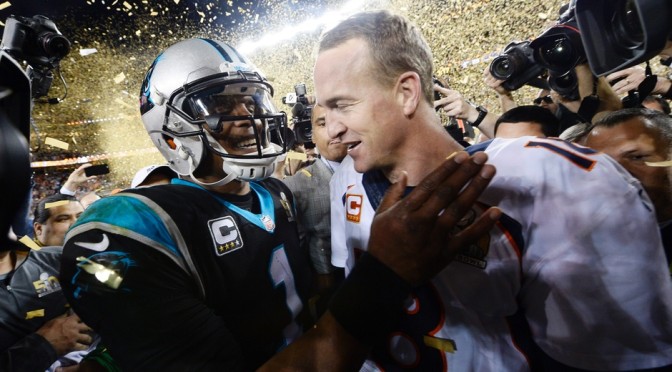sermon photo: Playable Art Park – Sandy Springs, Georgia
Caitlin Trussell with Augustana Lutheran Church on September 19, 2021
[sermon begins after two Bible readings]
James 3:13-4:3, 7-8a Who is wise and understanding among you? Show by your good life that your works are done with gentleness born of wisdom. 14But if you have bitter envy and selfish ambition in your hearts, do not be boastful and false to the truth. 15Such wisdom does not come down from above, but is earthly, unspiritual, devilish. 16For where there is envy and selfish ambition, there will also be disorder and wickedness of every kind. 17But the wisdom from above is first pure, then peaceable, gentle, willing to yield, full of mercy and good fruits, without a trace of partiality or hypocrisy. 18And a harvest of righteousness is sown in peace for those who make peace.4:
1Those conflicts and disputes among you, where do they come from? Do they not come from your cravings that are at war within you? 2You want something and do not have it; so you commit murder. And you covet something and cannot obtain it; so you engage in disputes and conflicts. You do not have, because you do not ask. 3You ask and do not receive, because you ask wrongly, in order to spend what you get on your pleasures. 7Submit yourselves therefore to God. Resist the devil, and he will flee from you. 8aDraw near to God, and he will draw near to you.
Mark 9:30-37 [Jesus and the disciples went on] and passed through Galilee. He did not want anyone to know it;31for he was teaching his disciples, saying to them, “The Son of Man is to be betrayed into human hands, and they will kill him, and three days after being killed, he will rise again.” 32But they did not understand what he was saying and were afraid to ask him.
33Then they came to Capernaum; and when he was in the house he asked them, “What were you arguing about on the way?” 34But they were silent, for on the way they had argued with one another who was the greatest. 35He sat down, called the twelve, and said to them, “Whoever wants to be first must be last of all and servant of all.” 36Then he took a little child and put it among them; and taking it in his arms, he said to them, 37“Whoever welcomes one such child in my name welcomes me, and whoever welcomes me welcomes not me but the one who sent me.”
[sermon begins]
During the Children’s sermon on Labor Day, I asked kids what they thought their job was as children. One courageous young friend said, “Play.” Play was a great answer. We tend to think of playing as a children’s thing. Play is imagination, curiosity, happiness, and (often) energy lumped into an experience that doesn’t have to have a goal. Play is just play. Another thing kids do is ask questions – sometimes as if it’s their job. So many questions. “Why” questions seem to be a fan favorite of the curious child. Why-this and why-that launch at a rapid pace across all kinds of topics. Being at the receiving end of those kinds of questions is awesome until something else needs to get done. Then it’s difficult to end the stream of questions. There are times, though, when a well-placed question makes all the difference. Take Jesus’ question in the reading today when he asked his disciples, “What were you arguing about on the way?”
The disciples had been arguing on their way to Capernaum. It’s curious that Jesus didn’t interrupt their argument on the walk. Maybe he was waiting for the right moment or perhaps letting them get it out of their system. It’s even more curious that the disciples didn’t understand Jesus’ teaching about his betrayal, death, and rising again and were afraid to ask a question about it. Or maybe it’s not that hard to understand. The last time Jesus taught about his death, Peter’s misguided speech to Jesus went poorly – so poorly that Jesus told Peter to get behind him and called him Satan. That couldn’t have made it easy for the disciples to get their courage on. Although, it may have gone better for Peter if he had asked some questions rather than debating Jesus. Regardless, here we are again. Jesus once again taught about his death and resurrection. The disciples didn’t get it and, not only that, they were also afraid to ask him question about it. It’s not clear that a Q & A would have addressed their questions. Jesus’ actual death and resurrection is hard to fathom after the fact. His disciples didn’t stand much chance of figuring it out ahead of time. Jesus likely knew this too.
So, he put a child among them and held that child while teaching them. Most of us need examples to learn, and the disciples were no different. Children in the first century had no standing in the community, no status whatsoever. For Jesus to acknowledge a child in his presence, much less use one as an example, was earth shattering in a way that’s difficult for us 21st century types to comprehend. To take a child with no standing, and stand the child among them, upended the disciples’ ordered world. Hierarchy is what they understood to be true. There’s a highest level of the hierarchy, a lowest level of the hierarchy, and there’s everything in between. Being at the top of the hierarchy meant being the greatest. And being the greatest was the goal. Hence the disciples’ argument. If they couldn’t understand Jesus’ teaching and were afraid to ask, maybe they could compensate by being the top of the heap, the greatest of all time. It’s neither hard to see the timelessness of Jesus’ teaching to be last and least, nor is it hard to see how the world would be a better place with a scooch more humility. It’s just hard applying Jesus’ teaching to our own lives and maybe harder to apply it to our children’s lives. When have you ever coached a child to be last as a life goal? When have you encouraged a friend to be a servant? When have you yourself decided to live into and through your most recent humiliation to find a lesson in the heartache?
Last week, Pastor Ann preached Jesus’ challenge for us to be bearers of the cross rather than its defenders. There are more than enough folks ready to battle it out, coming out swinging and defending their truth at any cost and against everyone else’s humanity. This week, Jesus continues to challenge us to be cross bearers, to be transformed through servanthood into Christ-shaped disciples – willing to be last of all and servant of all in obedience to the One we follow. Or, to summarize the James reading, do your works with gentleness born of wisdom from above. In these verses today, James continues to encourage a church struggling to be the church in a society that threatens to overwhelm its faith and obedience.[1] Warnings against partiality and hypocrisy and encouragement towards mercy and peacemaking are themes wound together with this Jesus’ actions in the Gospel reading from Mark.
What does gentleness born of wisdom look like? It looks like Jesus holding a child in front of his disciples after they’ve argued about greatness. What does peacemaking look like? It looks like Jesus standing firm about servanthood being the greatest. What does mercy look like? It looks like Jesus rejecting human violence, dying on a cross, and rising again in love not vengeance.
What does gentleness born of wisdom look like for us? Perhaps it looks like figuring out how to welcome someone with no social standing into a conversation at church, school, or work. What does peacemaking look like for us? Perhaps it looks like serving those people who we deeply believe do not deserve to be helped or are beyond help. What does mercy look like for us? Perhaps it looks like rejecting violence and vengeance as cross-bearers in our families and community by, at the very least, not celebrating when someone we disagree with tumbles from their pedestal in public humiliation.
Our world needs the church to be the body of Christ in the way that Christ asks us to do it – with Christ who lives in us and shows us a different way to move through the world. To do this we may have to take ourselves just a scooch less seriously and be more playful. Play as a theological posture fuels curiosity and imagination just like play does for our youngest siblings in Christ who come up for Children’s sermons. A thousand years ago, Anselm of Canterbury, encouraged the church towards “faith seeking understanding.” His encouragement reminds us that it’s not our thoughts about Jesus that save us. Jesus – who died on a cross and lives again – saves us.
One thing that the cross means is that there is nothing that you can do or not do to make God love you any more or any less. God’s love in Jesus frees us to be a courageous church who asks questions. So, ask “Why?” If you’d like to be more Luther-y about it, ask, “What does that mean?” Questions are important to faith and one way the church figures out our obedience to Christ. Jesus was the one in the Bible reading who asked a question. It wasn’t that the disciples didn’t have questions to ask Jesus. They were too afraid to ask them. Don’t be like that disciple. Be like Jesus – the one who inspires us to love by loving us first.
________________________________________________________
[1] Matthew L. Skinner, Professor of New Testament, Luther Seminary, St. Paul, MN. Sermon Brainwave podcast for worship texts on September 19, 2021. https://www.workingpreacher.org/podcasts/802-17th-sunday-after-pentecost-ord-25b-sept-19-2021




